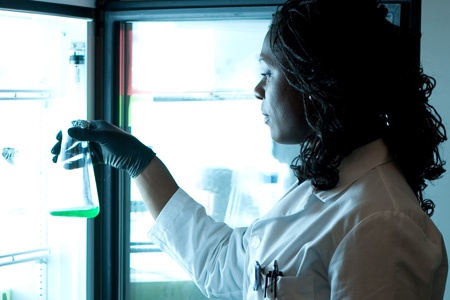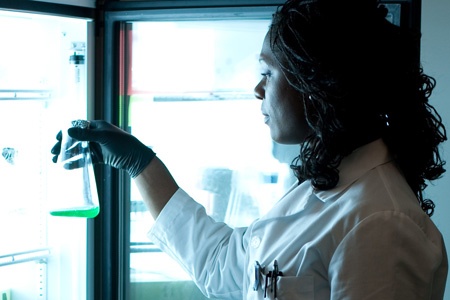 Science and Nursing have always gone hand-in-hand. You can’t be a Nurse without taking all of those science classes. Do you know you can be a Nurse and work as a researcher? Perhaps there’s a malady you want to learn more about and in researching it, you find new discoveries that will help eradicate it.
Science and Nursing have always gone hand-in-hand. You can’t be a Nurse without taking all of those science classes. Do you know you can be a Nurse and work as a researcher? Perhaps there’s a malady you want to learn more about and in researching it, you find new discoveries that will help eradicate it.I am a woman’s health and adult nurse practitioner with over 10 years of experience. I also am a scientist who studies why some younger women are at greater risk of developing breast cancer, including more aggressive forms of the disease.
Many people are unfamiliar with the idea of nurses as researchers. Our common image of nurses is of the caretaker at the bedside. But nurse research can be traced at least as far back as Florence Nightingale, the mother of nursing, who measured illness and infection rates among wounded soldiers during the Crimean War in the 1850s. With results in hand, she then petitioned the British Government to improve health conditions, first for soldiers and later for all citizens in England.
I took a non-traditional nursing career path. While earning my Ph.D. in biochemistry, I started thinking—it’s one thing to manipulate conditions in culture, but when you’re dealing with dynamic human beings, there are many other factors involved such as their diet, their stress level, and how they respond to medication. A way to ensure my research was clinically effective was to become a clinician. I chose the discipline of nursing because of the holistic approach—mind, body, and spirit.
I ultimately believe that my research will help the medical community understand the cascade of events in breast cancer development among a broad spectrum of ethnic groups which, in turn, will help develop therapeutic agents that target cellular/molecular events in aggressive breast cancer.
Like myself, several of my colleagues here at the UCLA School of Nursing are also addressing important health issues and doing groundbreaking research in biological science. Nurse scientists who were motivated by patients who had specific health concerns and they wanted to find the answers.
Dr. Wendie Robbins was a nurse practitioner working in rural public health clinics when she started noting patterns in poor reproductive outcomes. Wanting to help families desperate to have a baby, she decided to pursue a new career combining epidemiology with laboratory research. As a nurse scientist, Dr. Robbins combined her clinical background with her lab and epidemiology expertise to head a study to improve men’s reproductive health through increased walnut consumption. Can men’s semen quality be improved by adding walnuts? Preliminary results suggest the answer is yes.
Dr. Karen Gylys is passionate about making a difference in understanding the complexities of Alzheimer’s disease. She uses postmortem brain tissues and oftentimes drives to neuropathology labs to pick up donated samples. Recently, she published the first study to look at the disease progression in the synapses to see why some people develop Alzheimer’s and others don’t.
Dr. Dorothy Wiley had long worked with disenfranchised communities, where she saw patients with sexually transmitted diseases such as HIV and HPV. She considers herself a translational scientist whose research interests span biological science and human illness using epidemiological methods to better understand how HPV and HIV, together and apart, influence morbidity and mortality in human populations. Her laboratory research centers on biological factors that influence risk for persistent HPV infection. Currently, she leads a clinical-translational investigation that is developing improved anal cancer screening methods for high-risk populations. In the past, she was part of industry’s first clinical trials of FDA-approved HPV vaccines
Together, we have published more than 100 articles in peer-reviewed journals and our work has been cited by others in biological research journals.
What we all have in common is that we all are nurses who want to make a difference in the health of our patients. And we believe that research makes nursing even more relevant and transformative.








